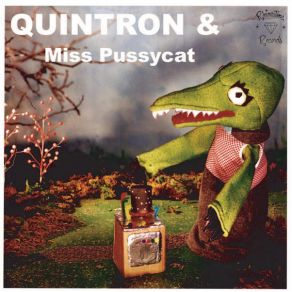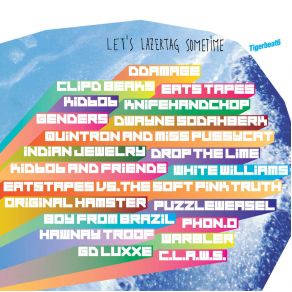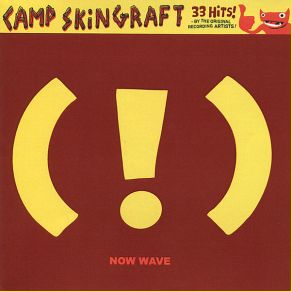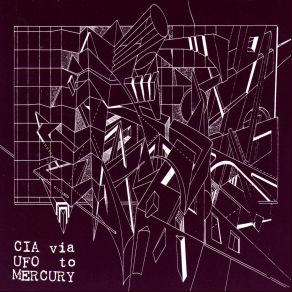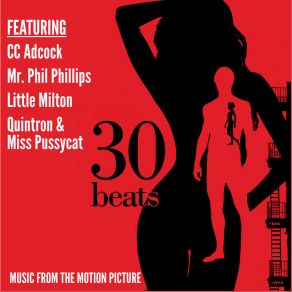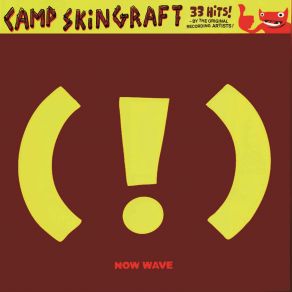Quintron
Wikimp3 information about the music of Quintron. On our website we have 16 albums and 8 collections of artist Quintron. You can find useful information and download songs of this artist. We also know that Quintron represents Alternative genres.
Biography
[Edit]Robert Rolston (aka Quintron) has described his organ playing as a cross between the stylings of Raymond Scott, the composer whose music was famously used in Warner Bros. cartoons, and jazz organist Jimmy Smith. Aside from his organ playing, Rolston is a multi-instrumentalist who performs on traditional items like guitar, drums, and trumpet, as well as homemade inventions such as the Disco Light Machine, an attachment for drums where light is triggered by sound; the Spit Machine, a drum machine powered by saliva; and the Drum Buddy, which contains five oscillator circuits that create drum sounds when exposed to light.
Rolston was born in Germany while his father was stationed there for military service. His family returned to the States, first settling in Mobile, Alabama, and then St. Louis, Missouri. At the age of 17, Rolston set out for Chicago to join the drama troupe Theater Oobleck. Upon his arrival in Chicago in 1989, Rolston enrolled at DePaul University, where he became involved with the school's drama department. He also joined the cover band Idol Chatter, which performed everything from Talking Heads to Chicago blues. Rolston soon lost interest in college and opted to leave after completing three semesters. By 1990, he was playing drums for the indie band Math and founded Wicker Park's Milk of Burgundy club.
After four years of performing together, Math broke up. Rolston took the opportunity to start a one-man band. He dubbed his new project Quintron, after the name of the company where his dad was employed as an electrical engineer. He recorded his first album, I.F. 001-011, a foray into the sounds of Rolston's homemade percussion, for Ypsilanti, Michigan's Bulb Records. One of the stops he made was at Pussycat Caverns, which was located in an old theater in New Orleans' Ninth Ward District. The venue was operated by Panacea Theriac (aka Miss Pussycat), with whom Rolston became an instantaneous friend and lover. After the Milk of Burgundy shut its doors in 1995, Theriac joined Rolston on tour, playing maracas and singing backing vocals. While in Las Vegas, the couple married.
The pair settled in New Orleans, with Theriac working as a seamstress and Rolston as an elementary-school science teacher. He also started the Mighty Mouse Electric Service, where he worked as an electrician. In 1995, Theriac persuaded Rolston to set aside the drums in order to focus on playing organ. He began writing a number of tracks on his Hammond S-6 organ for his second full-length album, The Amazing Spellcaster, which was released on Bulb a month prior to the closing of Pussycat Caverns in March of 1996. Looking for a new home, Theriac and Rolston purchased an old home in the Ninth Ward district of New Orleans.
An untitled track from Quintron appeared on a live compilation on Atavistic Records by January of 1997. Rolston mixed the compilation, titled CIA Via UFO to Mercury, which featured other acts such as the Flying Luttenbachers, Trenchmouth, the Scissor Girls, and Rolston's old band, Math. That summer, Rolston and Theriac opened the Spellcaster Lodge in their basement. The opening included performances by R&B great Ernie K-Doe and Quintron. Later that month, the Quintron/Oblivians collaboration Play 9 Songs with Mr. Quintron arrived on Crypt Records. The Oblivians' garage punk, mixed with Quintron's improvised keyboard lines, set the ground for an album of juke joint spirituals. Around this time, Rolston and Theriac started their own label, Rhinestone Records, to release their output. Rolston closed the year by contributing the track "Nightclub Organist" to the Skin Graft album Camp Skin Graft: Now Wave Compilation alongside artists such as Bobby Conn, Dazzling Killmen, Melt Banana, Lake of Dracula, Cheer-Accident, and Theriac's puppet band, Flossie & the Unicorns. July of 1998 saw the release of Quintron's next album, Satan Is Dead, on Bulb. The record was more focused than any of Rolston's previous efforts, demonstrating his knack for forming actual song structures.
Rolston's full-length Skin Graft debut, These Hands of Mine, appeared in November of 1998 and charted on Rock & Folk magazine's best-releases-of-the-year poll. On his promotional tour for the release during March of 1999, Quintron was met by an audience of hecklers when he appeared on the nationally syndicated Chicago talk show Jenny Jones. The appearance was followed by his first European tour. While on the journey, Rolston and Theriac were invited to record a session for John Peel's show on BBC radio. The early part of 2000 was spent working on an infomercial for the Drum Buddy, which converted light into analog rhythm patterns. Featuring actor Bob Global and Tucson, Arizona weather anchor Rebecca Simms as hosts, the infomercial also featured Miss Pussycat, Quintron's friend MC Tracheotomy, the Drum Buddy Dancers, and K-Doe. The surreal 49-minute video aired on some late-night television stations, giving viewers the chance to purchase one of the machines for $999.99. Skin Graft released the Drum Buddy Demonstration Record, Vol. 1, which taught listeners how to play the contraption. Rolston eventually made and sold 44 Drum Buddies before reaching his self-imposed manufacturing deadline.
Quintron's seventh full-length album, The Unmasked Organ Light-Year of Infinity Man, was released on September 19, 2000. The release, which ended up being a collaboration between Bulb and Rhinestone Records, marked the recording debut of Rolston's Drum Buddy. He returned in 2003 with Are You Ready for an Organ Solo? on Three One G; that year, Skin Graft also reissued Drum Buddy Demonstration on CD. The following year saw the CD debut of The Frog Tape. In 2005, Quintron and Miss Pussycat moved to Tigerbeat6 and released the CD/DVD album Swamp Tech, which featured new music from Quintron and an accompanying puppet movie by Miss Pussycat. Just before the duo went on tour to support the album, Hurricane Katrina hit New Orleans. While both Quintron and Miss Pussycat were fine, their house sustained water damage and the pair lost instruments and puppet-making supplies. Quintron and Miss Pussycat continued with their fall tour, which also included a series of benefit concerts to help them rebuild in the wake of the disaster. Too Thirsty for Love arrived in 2008, while Sucre du Sauvage, which was recorded at New Orleans' Museum of Art and City Park from January to May of 2010, arrived in early 2011.
The following year, Quintron was nominated for a Grammy Award for his songwriting contributions to Steve Riley & the Mamou Playboys' Grand Isle, which featured a version of his song "Chatterbox." Part of Quintron's 2014 album Spellcaster II: Death in Space — which featured pedal steel and drones from the Weather Warlock, an environmentally powered device that he invented — served as the soundtrack to the short sci-fi film Mizra the Miraculous by filmmaker Brent Joseph.
Title: The Amazing Spellcaster (Live at the Pussycat Caverns)
Artist: Quintron
Genre: Rock, Indie Rock, Alternative
Title: The Unmasked Organ Light-Year of Infinity Man (F**k Everybody Else)
Artist: Quintron
Genre: Rock, Punk, Alternative
Title: The Unmasked Organ Light-Year of Infinity Man (Fuck Everybody Else)
Artist: Quintron
Genre: Rock, Alternative Rock, Indie
Collections
Title: Goner Fest 4
Genre: Rock, Alternative
Title: Let's Lazertag Sometime
Genre: Electronica, Rock
Title: Camp Skin Graft (!): Now Wave
Genre: Alternative
Title: Psych-Out Christmas
Genre:
Title: Checking the Skies for Taikonauts
Genre: Electronica, Alternative
Title: CIA Via UFO to Mercury
Genre: Rock
Featuring albums
Title: Skin Graft Sampler: The Blueghost Party Favor
Artist: Various Artists
Genre: Rock, Alternative









